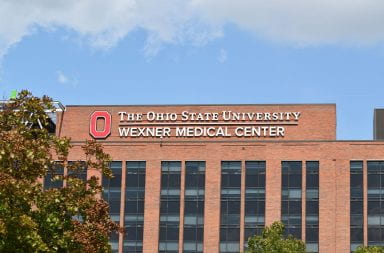Community Ambassadors kicked off its program last week by going door-to-door with information.
The pilot program was designed by Off Campus Student Services and the Undergraduate Student Government to turn the University District into a safer, more welcoming place to live.
“We want students to stay involved and connected to the university after they have moved out of the dorms,” said Andrew Boruch, co-program director for Community Ambassadors.
With eight ambassadors for eight streets, the student leaders are available as resources for residents to aid them with problems that may arise within the community, from landlord disputes to burnt-out traffic signals.
The ambassadors, comprised of six women and two men, were chosen through an application and interview process that began in the fall. They will receive $100 toward their monthly rent charges.
“We chose people who were really enthusiastic and genuinely wanted to help,” said John Rensink, co-program director.
The ambassadors claim they aren’t in it for the money but for the desire to help out and clean up the community.
“I wanted to get involved because of the violence and rapes that have been occurring, and I just want to improve the quality of life around here,” said 13th Avenue ambassador Stephanie Hill.
Starting in the spring, Community Ambassadors hopes to move its program outdoors with beautification projects, cookouts and intramural tournaments with other streets.
“We want to put a little spirit back in the neighborhood,” Hill said.
Much of the funding for and salaries of the ambassadors are coming from the large real-estate companies in the area, which are in support of revitalizing the community.
“No one feels off campus is really their home. We want to create a community sense of living with safer streets, prettier neighborhoods, and make it an all-around better place to live,” Rensink said.
By putting students in charge, program coordinators think other students may find it easier to talk with the ambassadors as opposed to administrators. The program is also looked upon as a chance to curb riots.
But some students — like Tiffany Bechtel, senior in atmospheric sciences — are skeptical of the idea.
“It would work if people took it seriously,” she said. “It’s hard enough to get people together in a dorm, let alone an entire street.”
The streets involved in the pilot program are West Eighth, Chittenden, 12th, 13th, 18th, Woodruff, Frambes and Norwich avenues.


